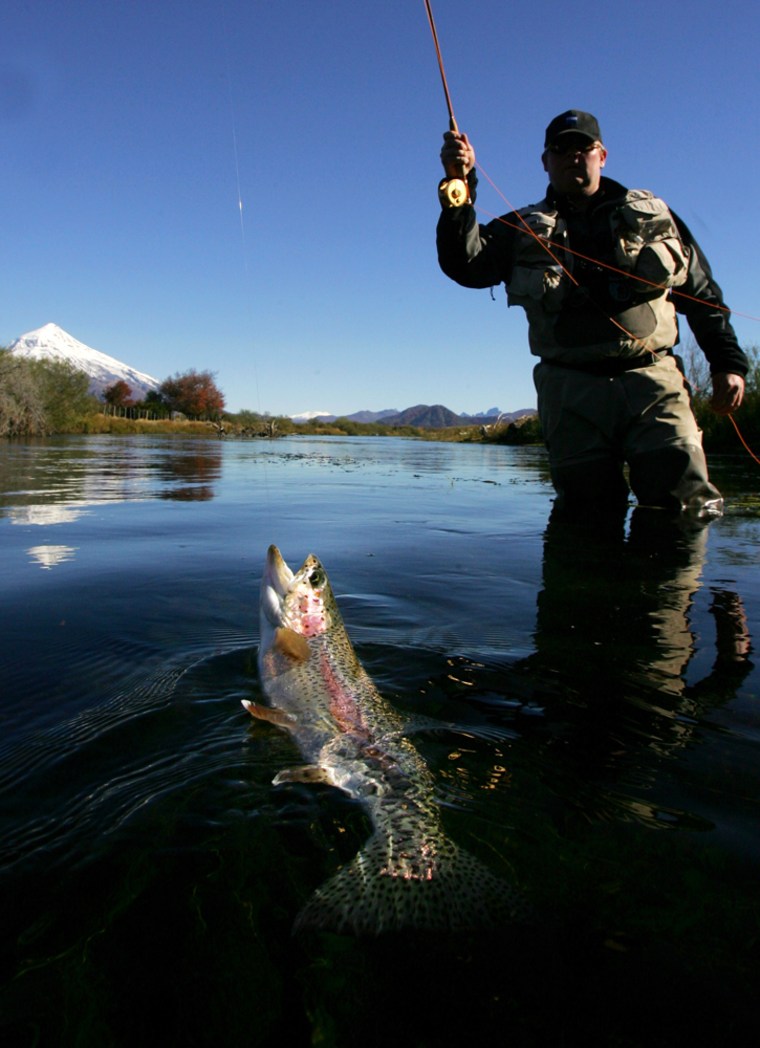Just as daily life is becoming increasingly overloaded with communication, so is travel. Cell-phone towers are proliferating in ever more remote spots. Tajikistan, Burkina Faso, and Russia may still have wide stretches without service, but China is almost completely covered, and even buffalo herders in Laos have cell phones. All of which means that in destinations that feel exotic and faraway, travelers are still tailed by the bleeps, rings, and buzzes of text messages, e-mails, and calls from the office.
This communication overload may be why travel companies that specialize in rugged adventure journeys to the most remote locations around the globe are reporting substantial increases in business. “We’re seeing a lot more people in high-stress jobs really trying to go places where they can’t easily be connected,” says Steve Cox, executive director of the nature-travel company International Expeditions, which conducts trips throughout the world, everywhere from the Galápagos Islands to Uganda. “In some cases, they feel that they’ve been so driven in their professions that they’ve neglected their families, and so they want to travel together someplace where they can’t be distracted.”
Or in other instances, they’re traveling on their own and just need to be cut off from — well, everyone and everything. One prominent internet entrepreneur and hedge funder was recently looking into white-water rafting trips in Zimbabwe — a politically sensitive place, to be sure, but one where he’d be out of BlackBerry range. “If you can get totally away, you come back feeling refreshed,” explains Rohina Bhandari, vice president of AIG Investments in New York, who counts a trek up Mount Kilimanjaro and diving in Fiji among her recent adventures. “But what’s important is to connect with nature, to do things intensely. I can’t just go lie on a beach. If you do intense physical exercise, you feel like you’re accomplishing something.”
That fits a trend that Jim Sano, president of San Francisco’s Geographic Expeditions, has been seeing: Baby boomers with time and money are interested in authentic, off-the-beaten-path destinations. “Their idea of a vacation is very different from what their parents’ was,” he says. “They want more interesting destinations ... like what they experienced after college, but with more comfort.” His company’s bookings have risen by 30 percent during the last year for signature trips like trekking in Bhutan, climbing up Tibetan peaks, touring remote stretches of Patagonia, and skiing the last 62 miles to the South Pole. “We specialize in the kinds of places that you can’t get to on your own,” Sano says. In other words, places that come with the type of bragging rights that Type A’s appreciate.
In these destinations, your cell phone or BlackBerry is clearly out of range, and you’re not going to find a computer on the side of a mountain. (In fact, as anyone who travels in the U.S. can tell you, there are stretches of this country, such as the mountains in Colorado or even, depending upon your carrier, in upstate New York, that are cell-phone Siberias as well.) You may find lodges in Kenya wired for internet access, but that access vanishes if you do a mobile safari, going tent to tent, in Kenya or Tanzania or if you travel to a less wired country like Zambia or Botswana.
For travelers who insist on keeping in touch, chances are that the ship or travel company has a satellite phone or e-mail for emergencies — a fact that most try not to advertise to guests. “We have them onboard, of course,” explains David German, president of Toronto’s Fathom Expeditions, which offers journeys to the North and South Poles. “And of the 100 guests on each trip, maybe 30 to 40 will send one email and five will stay in touch with work. But as we get to Antarctica, maybe there is one message about how great the experience is. Antarctica is so overwhelming, they finally give up.”
And at some point, so does the signal. “Inmarsat only works up to 75 to 80 degrees around the Arctic Circle, and Iridium, which works all the way to the North and South Poles, can be erratic,” explains Francesco Cortini, vice president of marketing and group sales at Quark Expeditions, which also specializes in polar trips. “When the signal goes and travelers know that it is absolutely not possible to check messages, it’s more acceptable to them to ignore them ... and you can feel their sense of relief.”
